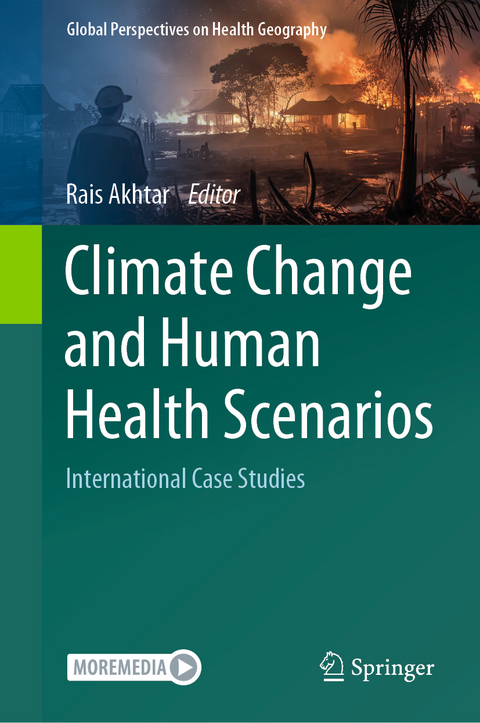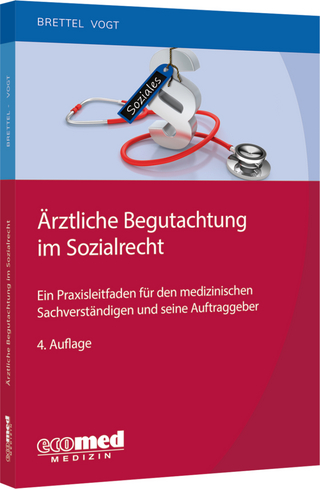
Climate Change and Human Health Scenarios
Springer International Publishing (Verlag)
978-3-031-38877-4 (ISBN)
The objective of the present edited book is to encompass studies from both developed and developing countries of Asia, Africa Europe, and Americas, to understand and present a comparative scenario of the climate change and other environmental determinants of health and disease in geographically diversified countries. Environment and health perspective dates back to Hippocrates treatise written 400 B.C.E. In his book On Airs, Waters and Places, Hippocrates described diseases as associated with environmental conditions, "Whoever wishes to investigate medicine properly, should proceed thus: in the first place to consider the seasons of the year, and what effects each of them produces for they are not at all alike, but differ much from themselves in regard to their changes. Then the winds, the hot and the cold, especially such as are common to all countries, and then such as are peculiar to each locality. We must also consider the qualities of the waters, for as they differ fromone another in taste and weight, so also do they differ much in their qualities. In the same manner, when one comes into a city to which he is a stranger, he ought to consider its situation, how it lies as to the winds and the rising of the sun; for its influence is not the same whether it lies to the north or the south, to the rising or to the setting sun".
There has been a greater emphasis in the last four decades on understanding environmental factors which affect human health, after United Nations established Intergovernmental Panel on Climate Change (IPCC) in 1988 aimed at to evaluate research on changing environmental condition, particularly climate change and its impacts on human wellbeing, including human health, as consequences of extreme heat waves conditions, sea level rise, forced migration, air pollution, droughts, and wildfires. From these studies, risk levels of vulnerable populations and regions can be assessed and level of resilience of healthcare infrastructure that may be used in environmental health policy and equity of these countries.
lt;p>Prof.Rais Akhtar is presently Adjunct Faculty,International Institute of Health Management and Research,New Delhi.FormerlyProfessor of Geography,and Dean,University of Kashmir,Srinagar, National Fellow and Emeritus Scientist(CSIR),CSRD,Jawaharlal Nehru University,New Delhi,and Visiting Professor Dept. of Geology,AMU,Aligarh. He has taught at the Jawaharlal Nehru University, New Delhi,University of Zambia, Lusaka and The University of Kashmir, Srinagar. He is recipient of a number of international fellowships including Leverhulme Fellowship ( University of Liverpool) ,Henry Chapman Fellowship (University of London),and Vvisiting Fellowship,(University of Sussex),Royal Society Fellowship, University of Oxford and ,Visiting Professorship, University of Paris-10. Prof.Akhtar was elected Fellow of Royal Geographical Society,London and Royal Academy of Overseas Sciences, Brussels.
Prof.Akhtar delivered invited lectures in about 55 universities geography departments and medical colleges including London School of Hygiene and Tropical Medicine, Liverpool School of Tropical Medicine,Dept. of Geography,University of Edinburgh, and School of Public Health , Johns Hopkins University, Baltimore.
He was Lead Author (1999-2007),on the Intergovernmental Panel on Climate Change (IPCC) , which is the joint winner of Nobel Peace Prize for 2007 .Prof.Akhtar is the recipient of Nobel Memento.
Prof.Akhtar has to his credit 91 research papers and 21 Books published from India,United Kingdom, United States ,Germany and The Netherlands. His t books entitled:Climate Change and Human Health Scenario in South and Southeast Asia,was published in 2016 by Springer, and his other books include Climate Change and Air Pollution (with C.Palagiano) published by Springer,and Geographical Aspects of Health and Disease in India (with Andrew Learmonth) published in 2018 by Concept (New Delhi).His latest books include: Extreme Weather Events and Human Health, was published by Springer in early 2020, Coronavirus (COVID-19) Outbreaks, Environment and Human Behaviour, and Coronavirus(COVID-19) Outbreaks,Vaccination,Politics and Society,2022,were also published by Springer in 2021 and 2022 respectively.
Prof.Rais Akhtar was Member of Expert Group on Climate Change and Human Health of the Ministry of Health and Family Welfare,Govt. of India. Prof.Akhtar has been appointed as Corresponding Member of Italian Geographical Society in October 2018.
1.Introduction.- 2.Australia.- 3.Fiji.- 4.Taiwan.- 5.Japan.- 6.Thailand.- 7.Malaysia.- 8.Indonesia.- 9.Bangladesh.- 10.India.- 11.Himalayas.- 12.Middle East.- 13.Italy.- 14.Italy.- 15.United Kingdom.- 16.France.- 17.Spain.- 18.Russian Federation.- 19.Kenya.- 20. Tanzania.- 21.South Africa.- 22.USA.- 23.USA.- 24.Canada.- 25.Mexico.- 26.Argentina.- 27.Brazil.- 28.Brazil.- 29. Conclusion and Suggestions.
| Erscheinungsdatum | 06.01.2024 |
|---|---|
| Reihe/Serie | Global Perspectives on Health Geography |
| Zusatzinfo | XXII, 470 p. 108 illus., 98 illus. in color. |
| Verlagsort | Cham |
| Sprache | englisch |
| Maße | 155 x 235 mm |
| Gewicht | 853 g |
| Themenwelt | Medizin / Pharmazie ► Medizinische Fachgebiete ► Arbeits- / Sozial- / Umweltmedizin |
| Naturwissenschaften ► Geowissenschaften ► Geografie / Kartografie | |
| Naturwissenschaften ► Geowissenschaften ► Meteorologie / Klimatologie | |
| Schlagworte | Air Pollution and health • climate change • COMMUNICABLE AND VECTOR AND VIRUS BORNE DISEASES • floodings • HEALTH DISASTERS • Sea Level Rise • TEMPERATURE AND RAINFALL AND HUMAN HEALTH • WILDFIRES FIRES |
| ISBN-10 | 3-031-38877-1 / 3031388771 |
| ISBN-13 | 978-3-031-38877-4 / 9783031388774 |
| Zustand | Neuware |
| Informationen gemäß Produktsicherheitsverordnung (GPSR) | |
| Haben Sie eine Frage zum Produkt? |
aus dem Bereich


